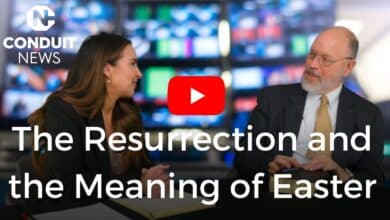Attorney and FOIA Expert Robert Steinbuch weighs in on talk of the upcoming special session and potential changes to Arkansas’s Freedom of Information Act.
Steinbuch says he is skeptical of changing our FOI law during a special session because it’s “something that should be done with care and deliberation.”
“It would be ironic if it weren’t so tragic that changing a law on transparency is one of the two items on a call that we’re not being transparent about,” Steinbuch says.
###
Excerpt from The Reporter’s Committee:
The deliberative process privilege is widely considered to be one of the most abused bases for denying access to information. Among transparency advocates and members of the press, it has become known as the “withhold it because you want to” privilege, reflecting how government agencies have used it to dodge disclosing embarrassing or politically inconvenient records.
Overuse of the deliberative process privilege has proven extraordinarily frustrating for reporters who rely on FOIA for newsgathering and increasingly find themselves disillusioned by improper use of exemptions. In February, the Project on Government Oversight conducted an analysis in which they compared the same records obtained by different organizations using FOIA requests.
The nonprofit found that in many instances, records acquired by one organization contained different levels of redaction than the same records acquired by another. In every instance cited by the analysis, Exemption 5 was invoked to redact information from one records request, but not in another.
For example, POGO did a side-by-side comparison of records obtained by POGO and records obtained by National Public Radio during similar investigations into immigrant detention centers. While the records provided in response to POGO’s request were largely redacted under Exemption 5, the exact same records were provided in full to NPR, suggesting an arbitrary application of Exemption 5 in responding to POGO’s request.
In January, Anne Weismann, chief FOIA counsel for Citizens for Responsibility and Ethics in Washington, published an article for Just Security detailing the experience of trying to acquire records via FOIA to report on President Trump’s halt on aid to Ukraine. According to Weismann, Just Security obtained unredacted emails from the Pentagon that contained troubling information regarding the freeze on aid.
Weeks earlier, The Center for Public Integrity, a nonprofit investigative journalism organization, had received the same emails in response to its own FOIA request, however the emails had been heavily redacted under Exemption 5.
“The unredacted versions newly obtained by Just Security … suggest the government invoked Exemption 5 not to protect an internal deliberative process, but to keep from the public compelling evidence of the president’s misconduct and abuse of power and the complicity of administration officials in his actions,” Weismann wrote.






